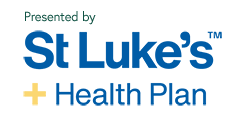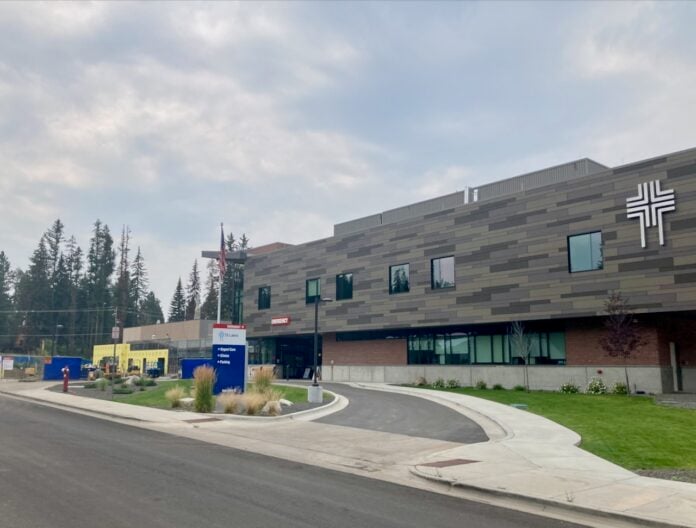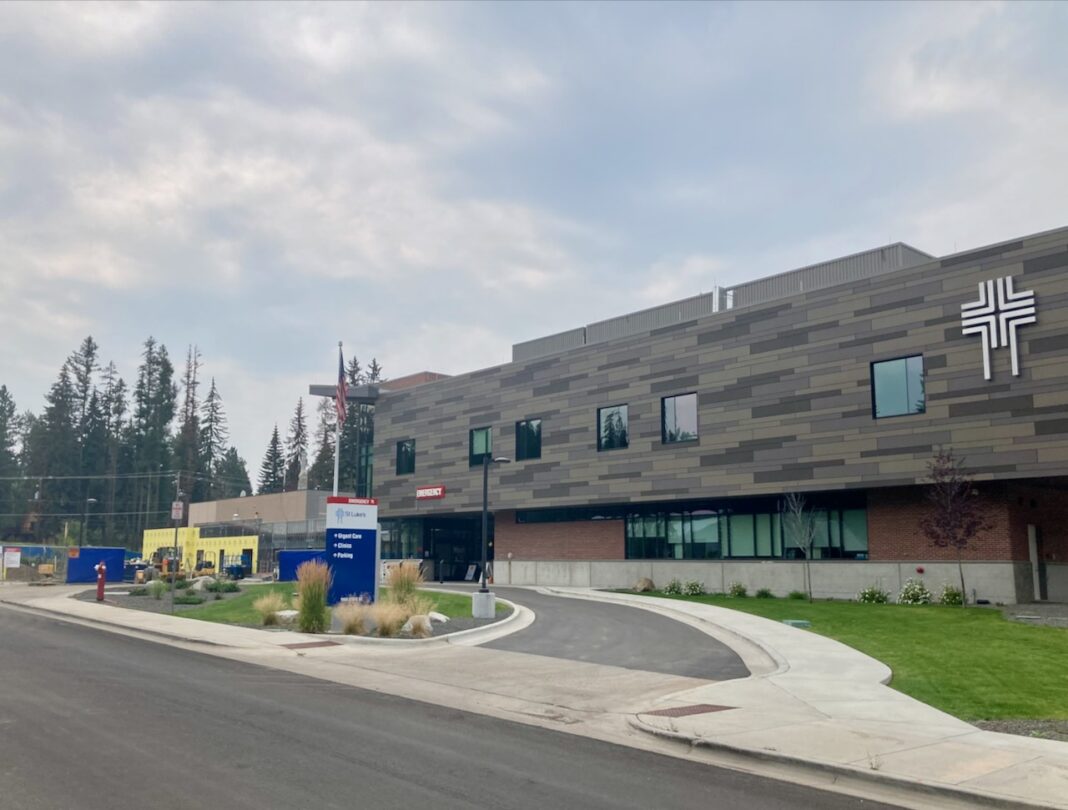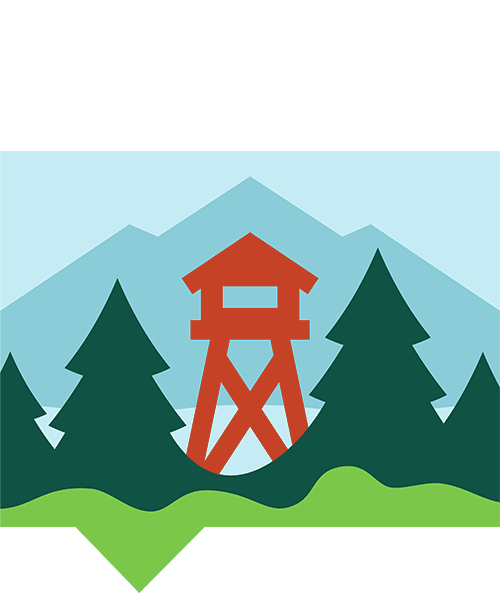Nearly all property taxes collected by the McCall Memorial Hospital District in 2026 will be spent on an employee housing project for St. Luke’s McCall.
Last week, the hospital board approved spending another $1.4 million on a 38-townhome development at the corner of Mission and Stibnite streets, raising the district’s total contribution to about $3.8 million so far.
The project, which the district is funding in tandem with the St. Luke’s McCall Foundation, is estimated to cost about $25 million at buildout.
So far, about $4.8 million has been pledged to the project, including public funding from the hospital district and about $1 million from the foundation, according to Director Jenny Ruemmele.
The foundation’s contribution includes half of the $965,000 paid to buy the 4.8-acre parcel on which the townhomes will be built in 2024. The other half was paid by the hospital district.
Construction of the 38 townhomes will be phased, with work on the first phase already underway. The first four-plex is expected to be ready for occupancy next spring, Ruemmele said.
The remaining $150,000 in property taxes collected by the hospital district in 2026 will cover expenses like office supplies and fees for legal counsel, accounting, insurance and the district’s website.
Attorney General investigation underway
The $1.4 million allocation to the housing project comes amid an investigation of the relationship between the hospital district and St. Luke’s McCall by Idaho Attorney General Raúl Labrador.
The investigation was requested by Give Us a Vote!, a citizens’ group that is backed by McCall resident Faye Thompson, who represents District 8 in the Idaho House of Representatives.
GUV believes that the hospital district’s contributions to the housing project, as well as other projects in recent years, are an illegal public subsidy to a private medical conglomerate, as Valley Lookout reported.
Meanwhile, the hospital district maintains that all funding awarded to St. Luke’s McCall complies with a 2016 agreement that requires the district to decide how taxpayer funding is spent. That agreement was carved out by then-Attorney General Lawrence Wasden after he found the original 2010 agreement had illegally rerouted taxpayer funding to St. Luke’s for the company to use as its own discretion.
District bylaws require the property taxes to be used “for the betterment of public health,” but do not preclude trustees from allocating the money to healthcare improvements unrelated to St. Luke’s—the only healthcare provider that has received district funding to date.
Without donors like you, this story would not exist.
Make a donation of any size here
The hospital district collects about $1.6 million per year in property taxes paid by residents of northern Valley County, or in the McCall-Donnelly area.
Local housing subsidy
Besides the public funding from the hospital district, the St. Luke’s employee housing project could also receive development credits of up to $760,000 from the City of McCall.
The district is currently working to sign all 38 townhomes onto the city’s local housing plan, which offers financial incentives for placing permanent restrictions related to local occupancy and affordability on housing units.
The employee housing is expected to be managed by St. Luke’s McCall, which indicated shortly after the project began that it plans to set rental prices at no more than 30% of the income of each tenant.
St. Luke’s McCall has repeatedly urged the need for workforce housing, citing hiring difficulties in recent years. Currently, there are 24 open positions at the hospital, 15 of which have been open more than 90 days, St. Luke’s Chief Nursing and Operations Officer Amber Green told the hospital district board last week.
“Our average time to fill is still 133 days,” Green said. “So over four months to fill any one position.”
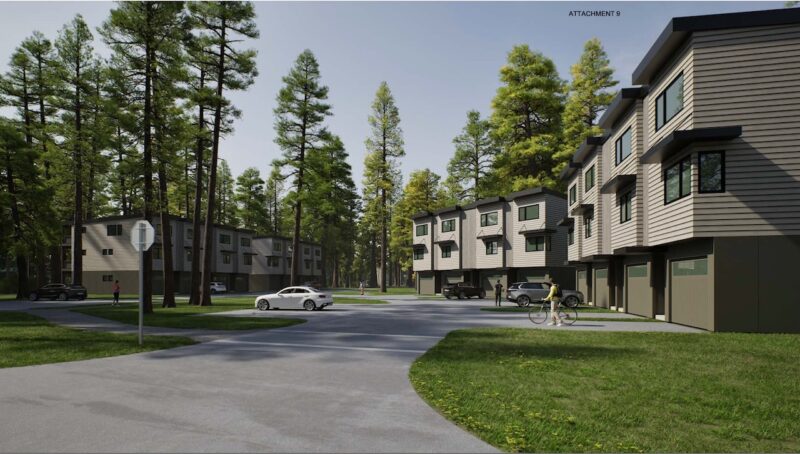
List of eligible tenants narrowed amid criticism
The employee housing townhomes are expected to be available first to St. Luke’s McCall workers, followed by other healthcare workers in the greater McCall area. Green believes hospital employees will occupy at least the first eight to 12 townhomes.
Last week, the board decided to remove a third alternative that would make the townhomes broadly available to local workers under criteria set by the city’s local housing program.
That idea was met with opposition from some residents of the Wildwood Condominiums, which neighbor the 4.8-parcel on which the townhomes are being built.
“This was not what was represented to us,” said Eva Prince, who previously spoke in general support of the project during public hearings to approve the development.
“We had no intent of being supportive to affordable housing outside of the strategic investment in ensuring high-quality healthcare,” Prince said. “So now we have been asked as taxpayers to become a subsidizing slush fund to continue to support the housing needs of the community at large.”
Another speaker, whose name was not captured by the meeting audio, said he agreed with Prince.
The board doubted the townhomes would ever need to be rented to anyone other than healthcare workers, given current demand, but directed legal counsel to remove the alternative anyway.
“We included that as a result of conversations with city staff,” McCall attorney Steve Millemann said. “I don’t think it was a hard demand, but it was intended to be a safety net catch-all.”
Millemann was optimistic the district could still qualify for development credits of $20,000 per unit from the city, but said negotiations are ongoing.
The McCall Memorial Hospital District was created by voters in 1984 to take control of the hospital from Valley County. St. Luke’s Health System began operating the hospital on a contract with the district in 1999.
In 2010, the district agreed to a merger with St. Luke’s that saw the company take control of the hospital’s administration. The district now retains ownership of its assets, including land under St. Luke’s McCall, while continuing to allocate tax funding to improvements at the hospital that the board believes St. Luke’s otherwise may not fund.


